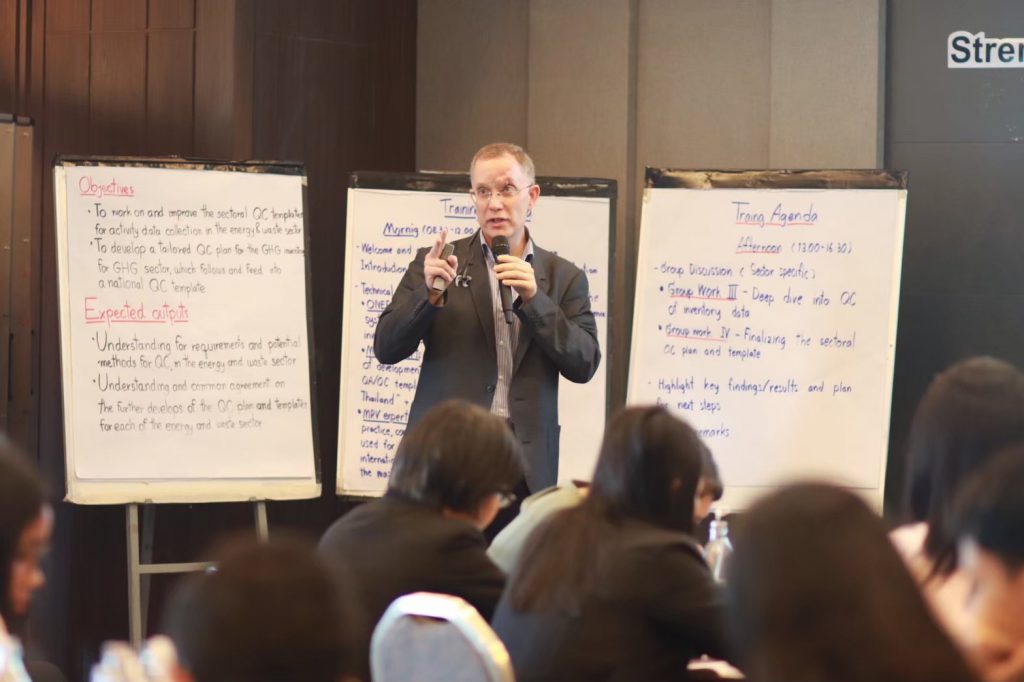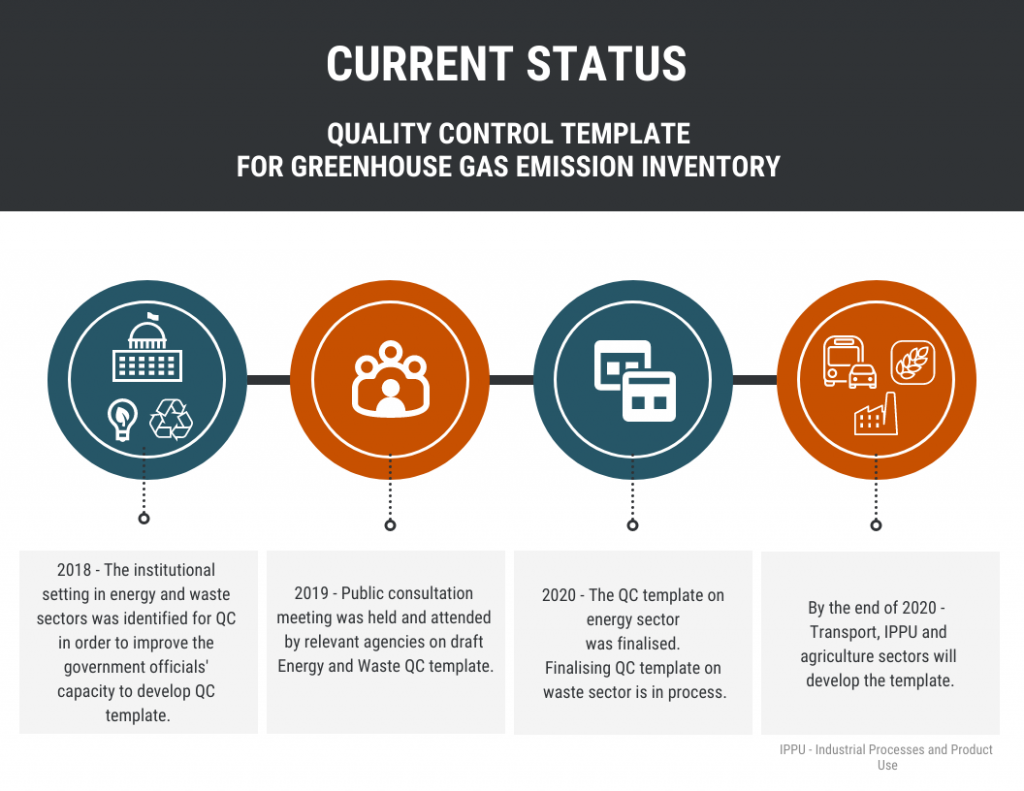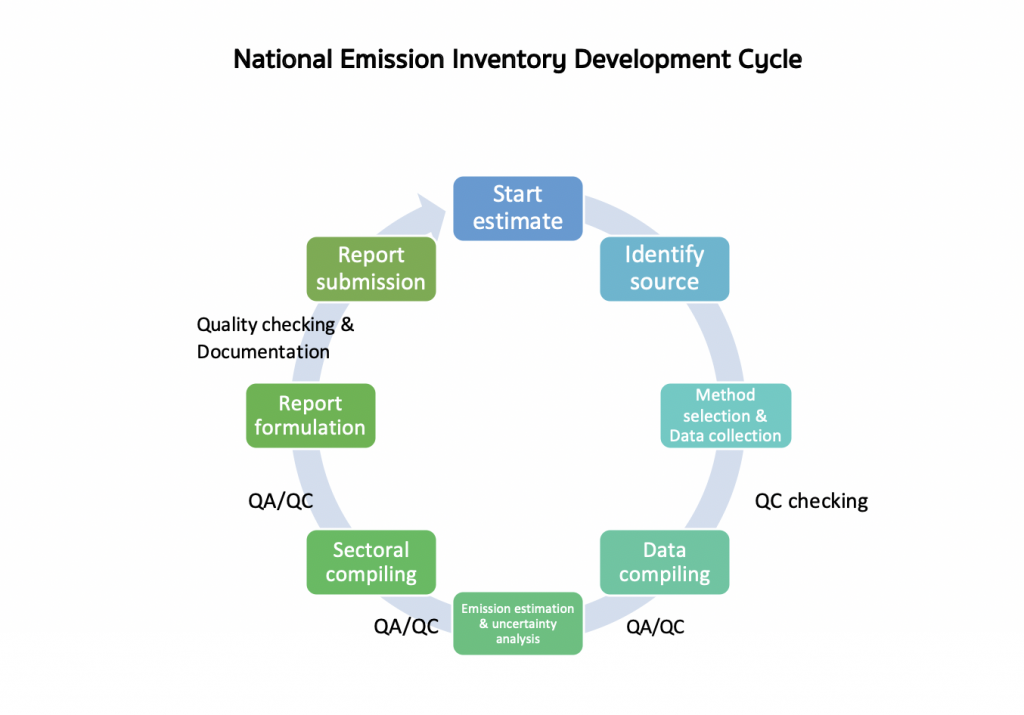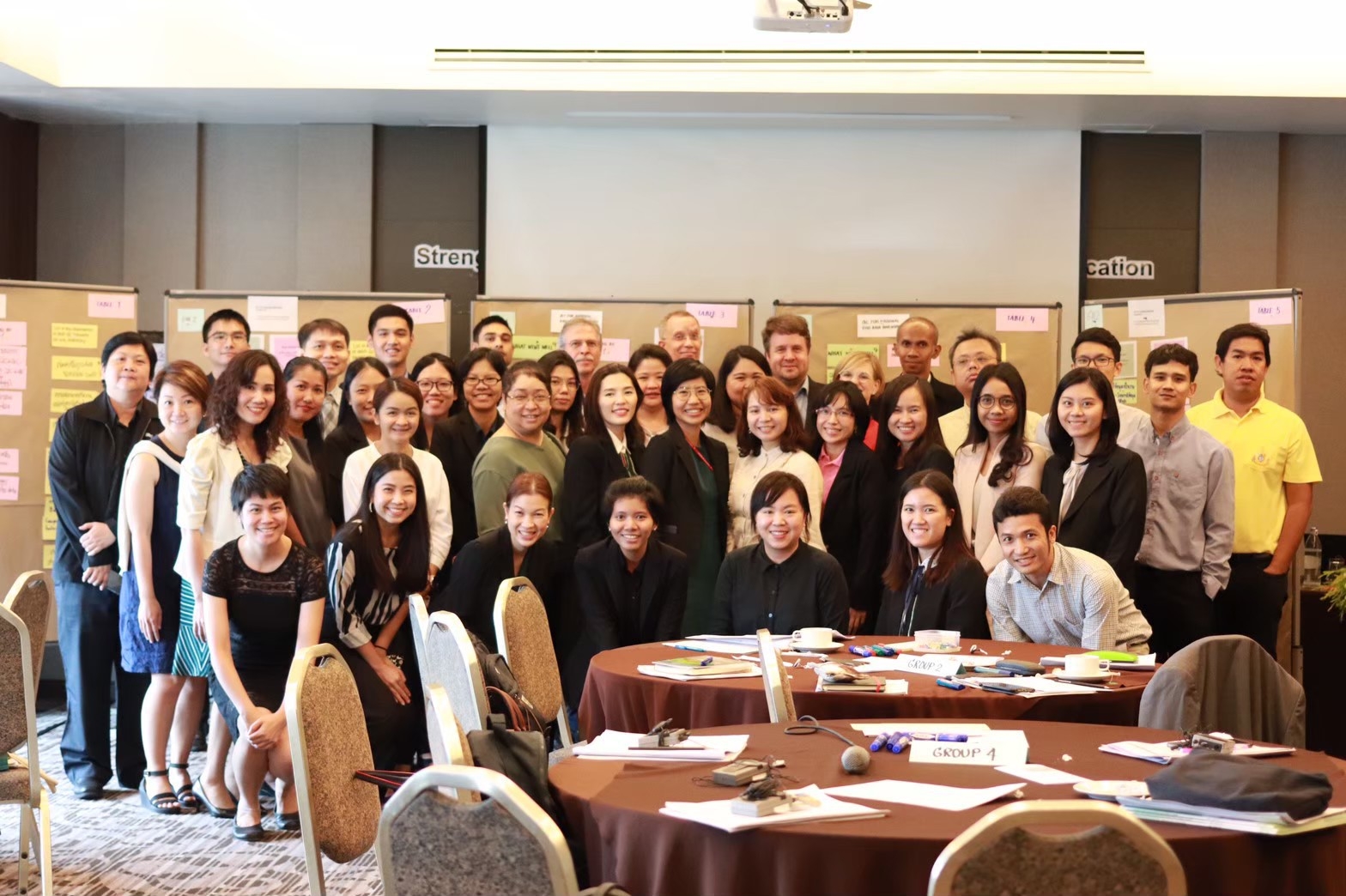The Office of Natural Resources and Environmental Policy and Planning (ONEP) supported by the Thai-German Climate Programme – Policy (TGCP-Policy) of GIZ developed the Quality Control (QC) Template to ensure the transparency and quality of the greenhouse gas emission inventory in the energy and waste sectors.
To protect the climate and limit global warming, Thailand pledged to the Paris Agreement that it would achieve its national target of greenhouse gas reduction by 20 percent by 2030 and by 25 percent with technical and financial assistance.
National climate reports such as the National Communications (NCs), Biennial Update Reports (BURs) and Biennial Transparency Report (BTRs) are required to be submitted every four years and every two years respectively to the United Nation Framework Convention on Climate Change (UNFCCC). Thailand plans to submit its first BTR in December 2024.
“As transparency is vital to the operation, the previous meetings and training on the framework and current situation in the transparency process of Thailand’s greenhouse gas emission inventory as well as gaps and recommendations on Measurement, Reporting and Verification (MRV) system have resulted in Quality Assurance (QA) and Quality Control (QC) guidelines. These will be in line with the Enhanced Transparency Framework and QA and QC template plan,” said Mr. Sivach Kaewcharoen, Director Climate Change Database and Knowledge Section, ONEP.
“Standardised formats for the regular Quality Control of Activity Data will support relevant agencies and their divisions in their work. This will demonstrate and report the reliability of the data to the ministers, support the improvement of the data collection and even officials’ technical capacities in checking the data” said Ms. Kirsten Orschulok, Project Advisor, TGCP-Policy.
And in keeping the transparency, accuracy, completeness, consistency and comparability, the report must be prepared in accordance with the Enhanced Transparency Framework (ETF). Therefore, to ensure the quality of national emission inventory results, the Thai German Climate Programme (TGCP) supports ONEP on developing QC as a tool for MRV for emission inventory development in order to meet the international standard for QC of GHG emission. The energy and waste sectors are the first in the cooperation to develop the template as they already have a clear MRV system. The Energy Policy and Planning Office is assigned to coordinate with all other divisions within the Ministry of Energy and Pollution Control Department for divisions and organisations related to the waste sector which are responsible for implementing the QC template.
The benefits of the QC template go beyond quality control. It also provides organised, conclusive and reliable information for other sectors to make use of. For example, in the waste sector, segregated and accurate information on the quantity and types of waste in particular areas can support effective and efficient waste disposal or recycling. In the energy sector, the policy makers can use the information to make decisions within their policies.
Other sectors including transport, Industrial Processes and Product Use (IPPU) and agriculture will start to develop the template by the end of this year.




